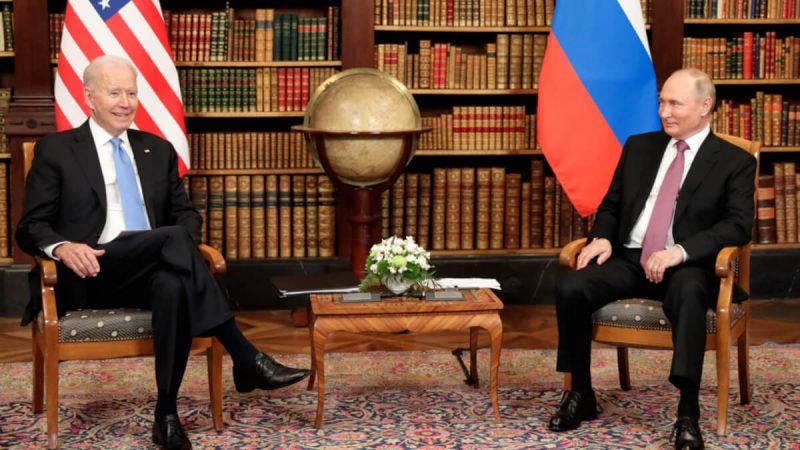Issue 6
About SDC DW Newsletter
Welcome to the sixth issue of the Digital Watch SDC Newsletter. This quarter we look at updates ranging from the best performing tech ecosystem in Africa to summit diplomacy.
While the summer months promise to be calmer, in the next couple of weeks keep an eye on tech issues at the High-level Political Forum on Sustainable Development (HLPF) taking place between 6 July and 16 July.

In this issue, we include a round-up of top news on development, e-governance, and humanitarian action.

We also share data on the cost of internet subscriptions worldwide and other factors that determine the digital quality of life index.
 In this issue, we include a round-up of top news on development, e-governance, and humanitarian action.
In this issue, we include a round-up of top news on development, e-governance, and humanitarian action.
 We also share data on the cost of internet subscriptions worldwide and other factors that determine the digital quality of life index.
We also share data on the cost of internet subscriptions worldwide and other factors that determine the digital quality of life index.
Top stories
Digital for development
Environment
The European Court of Auditors has announced that Bulgaria and Croatia are the only two EU countries likely to achieve EU’s recycling targets on e-waste.
Development
The World Bank approved a loan estimated at US$11 million in order to advance connectivity and digital economy activities in Togo.
Report finds that South Africa performs the highest in terms of the tech ecosystem in Africa with more than 700 start-ups and funding estimated at US$241 million.
Mobile operator Orange is expected to invest US$24.8 million in network coverage in Guinea Bissau.
According to the 2020 Digital Quality of Life Index, Nigerian citizens are required to work almost an entire standard working week (approximately 33h42min) in order to cover the monthly costs of the cheapest internet subscription. Working for a bit less than half the time, Kenyans follow suit with 14h21min. The Philippines perform the poorest on internet affordability in Asia given that an average Filipino needs to work 7h19min to connect to the internet. On the other hand, an hourly wage pays for a month of internet access in the USA. The survey found that broadband fees are cheapest in Canada where seven minutes of work clear the cost.
In addition to affordability, the Index takes into consideration other aspects, namely, internet quality, e-infrastructure, e-security, and e-government. Best e-government services and internet quality are found in Singapore, while the United Arab Emirates (UAE) and the UK boast best e-infrastructure and e-security. Despite ranking in the top ten, Canada (3rd) and France (4th) face the challenge of poor internet stability. Israel (8th), for its part, has a mediocre quality of internet.
E-governance
70 deals in 41 countries worldwide on cloud infrastructure and e-government services have been identified between Huawei and governments or state-owned enterprises.
The UN Children’s Fund (UNICEF) launched its first e-governance project in Lebanon to improve the availability of child-related data, and ultimately ensure better municipal services.
Food security
Microsoft and Africa Practice forecast that the agritech industry in Africa is expected to grow to US$1 trillion by 2030.
The Southeast Asian Regional Center for Graduate Study and Research in Agriculture (SEARCA) will develop the Association of Southeast Asian Nations’ (ASEAN) Guidelines for the Utilization of Digital Technologies for the ASEAN food and agricultural sector.
Gender
A Plan International study explores the role of digital technologies in addressing forced child marriage.
The UN Educational, Scientific and Cultural Organization (UNESCO) found that nearly three-quarters (75%) of female journalists have been victims of harassment online.
Health
Study finds that 65% of hospitals in the Asia-Pacific region are increasing spending on digital-health solutions such as remote consultations and robot-assisted surgery.
Recent research conducted by Statista found that healthcare apps are mostly used in China and India where 65% and 63% of individuals respectively resort to telemedicine devices. In European countries, like the UK (39%), Spain (38%), and Germany (35%), there is a lot more reticence to make use of digital health gadgets, including smartwatches, nutrition, and heart-rate monitoring apps. Despite being a high-tech country, the use of such devices is lowest in Japan.
The Swedish company Webrock and South Africa’s Healthforce partner on the development of a digital primary-care platform in South Africa.
Humanitarian action
The UN Relief and Works Agency for Palestine Refugees in the Near East (UNRWA) launched an online education platform with the aim to facilitate access to education for more than 540,000 refugee students across the Middle East.
Migration
Three million refugees in Pakistan are unable to access COVID-19 vaccines as a result of limited access to digital IDs.
Ukraine’s Ministry of Digital Transformation and the UN Development Programme (UNDP) launched an online subsidised mortgage programme for internally displaced people.
Water management
The VTT Technical Research Centre of Finland will create a digital platform for the management of global water resources.
In focus
Summit Diplomacy and Cooperation
The last couple of weeks have been busy with summit diplomacy. Areas of cooperation span from public health to economic recovery.
The round of summits began with the meeting of G7. From a digital perspective, at the Group of Seven meeting, leaders reiterated that digital transformation plays an important role in increasing productivity, creating new decent and quality jobs, and reducing greenhouse gas emissions in the post-COVID-19 era. The parties also agreed to work together towards a value-driven digital ecosystem that, among other things, will help improve internet safety and counter practices like online human rights violations.
The communique also features information and communications technology (ICT) infrastructure, and cooperation on encouraging competition and supporting innovation in digital markets.

Three days later, on 16 June, presidents Biden and Putin met for their first, much-anticipated summit. Among other things, the parties focused on nuclear disarmament, human rights issues, and cybersecurity.
On human rights violations, the USA and Russia discussed the case of the jailed Russian opposition leader Alexei Navalny, as well as the consequences that Russia would face if Navalny were to die in prison.
Cybersecurity came into the spotlight following several cyberattacks, including those targeting one of USA’s largest meat producers, as well as the Colonial Pipeline, conducted by Russian groups against the USA. President Biden is said to have defined 16 types of critical infrastructure that are ‘off-limits’ to cyberattacks. After long resistance from the USA, the two countries agreed to start bilateral talks in order to prevent further cyberattacks. Clarifying further, Biden stated ‘we agreed to task experts in […] both our countries to work on specific understandings about what’s off limits and to follow up on specific cases that originate in other countries — either of our countries’.
To learn more about the USA-Russia discussions on cybersecurity, please consult our latest trend on cyber detente.
The Digital Silk Road leads to Africa
The 47th G7 summit was recently concluded in Cornwall, UK, where the leaders of world’s most advanced economies agreed, among other things, to counter China’s Belt and Road Initiative with investments to help developing countries address infrastructure, supply chain, and climate challenges. But what about digitalisation?
African countries are increasingly turning to China in order to improve their digital infrastructure. Launched in 2015, as part of the Belt and Road Initiative, the Chinese Digital Silk Road aims to promote the development of the digital sector, including the roll-out of 4G, laying of fiber-optic cable, and the emergence of e-commerce platforms. Chinese investments are the most important in Ethiopia where they amount to US$2.4 billion. Nigeria and Zimbabwe have, so far, received the same amount of investment estimated at US$1.8 billion. China and Chinese companies are equally involved in the construction of data centers and smart cities across the African continent. Data centers have been built in Tanzania, Ethiopia, Ghana, to name but a few.
Keep an eye on: HLPF 2021
From 6 July to 15 July, the annual meeting of the UN High-Level Political Forum on Sustainable Development (HLPF) will be held under the theme of ‘Sustainable and resilient recovery from the COVID-19 pandemic that promotes the economic, social and environmental dimensions of sustainable development: building an inclusive and effective path for the achievement of the 2030 Agenda in the context of the decade of action and delivery for sustainable development’. This year’s meeting will be particularly dedicated to 9 of the 17 sustainable development goals (SDGs), including no poverty (SDG 1), zero hunger (SDG 2), and reduced inequalities (SDG 10). In addition to voluntary national reviews and numerous side events that often cover specific digital issues such as big data and internet access, a high-level session will be held on technology and innovation where questions on digital literacy, internet affordability and access to ICT infrastructure are expected to be addressed.
Tune in for our coverage of digital topics at the HLPF.
Digitalisation of Multilateralism
Digital technology impacts multilateralism in two ways. First, it brings new issues on the multilateral agenda. For example, data and fake news impact health, humanitarian, migration and data discussions. Second, digital technology introduces new tools for multilateral diplomacy such as e-participation, data analysis, and AI. You can subscribe for updates at multilateral@diplomacy.edu



